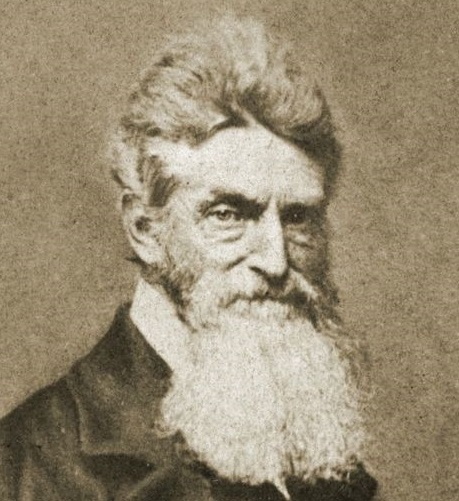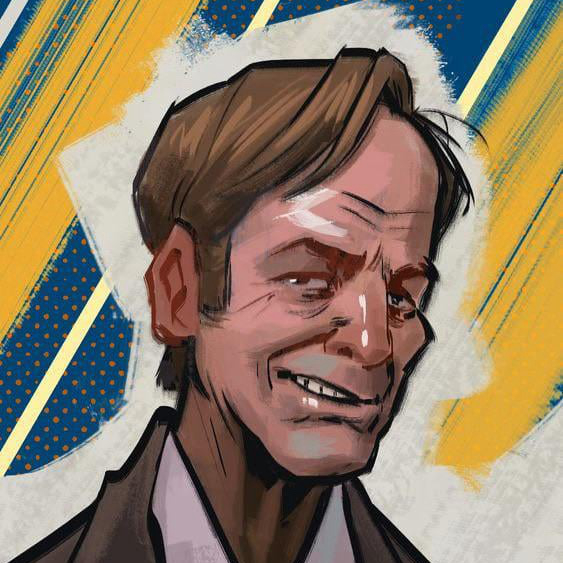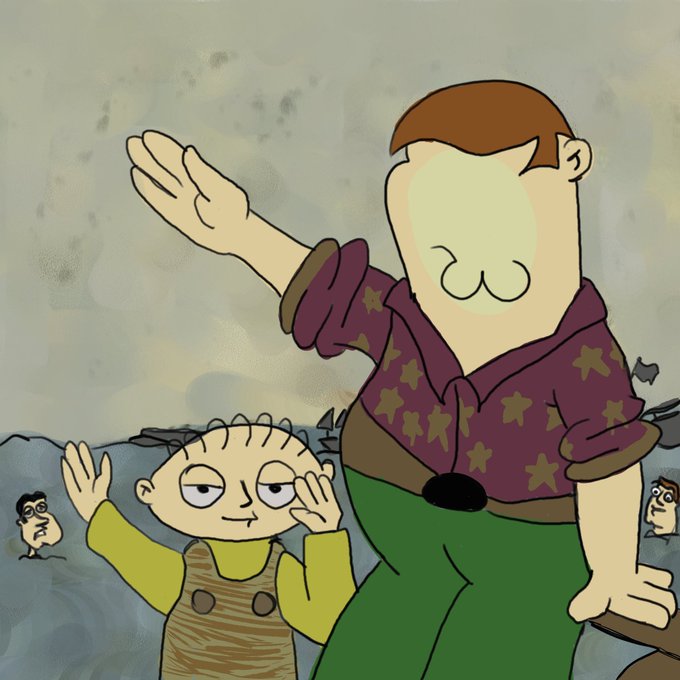In India, children under 16 returning to school this month at the start of the school year will no longer be taught about evolution, the periodic table of elements or sources of energy.
The news that evolution would be cut from the curriculum for students aged 15–16 was widely reported last month, when thousands of people signed a petition in protest. But official guidance has revealed that a chapter on the periodic table will be cut, too, along with other foundational topics such as sources of energy and environmental sustainability. Younger learners will no longer be taught certain pollution- and climate-related topics, and there are cuts to biology, chemistry, geography, mathematics and physics subjects for older school students.
Overall, the changes affect some 134 million 11–18-year-olds in India’s schools.
Researchers, including those who study science education, are shocked.
Mythili Ramchand, a science-teacher trainer at the Tata Institute of Social Sciences in Mumbai, India, says that “everything related to water, air pollution, resource management has been removed. “I don’t see how conservation of water, and air [pollution], is not relevant for us. It’s all the more so currently,” she adds. A chapter on different sources of energy — from fossil fuels to renewables — has also been removed. “That’s a bit strange, quite honestly, given the relevance in today’s world,” says Osborne.
More than 4,500 scientists, teachers and science communicators have signed an appeal organized by Breakthrough Science Society, a campaign group based in Kolkata, India, to reinstate the axed content on evolution.
NCERT has not responded to the appeal. And although it relied on expert committees to oversee the changes, it has not yet engaged with parents and teachers to explain its rationale for making them. NCERT also did not reply to Nature’s request for comment.
Chapters closed
A chapter on the periodic table of elements has been removed from the syllabus for class-10 students, who are typically 15–16 years old. Whole chapters on sources of energy and the sustainable management of natural resources have also been removed.
In non-science content, chapters on democracy and diversity; political parties; and challenges to democracy have been scrapped. And a chapter on the industrial revolution has been removed for older students.
In explaining its changes, NCERT states on its website that it considered whether content overlapped with similar content covered elsewhere, the difficulty of the content, and whether the content was irrelevant. It also aims to provide opportunities for experiential learning and creativity.
NCERT announced the cuts last year, saying that they would ease pressures on students studying online during the COVID-19 pandemic. Amitabh Joshi, an evolutionary biologist at Jawaharlal Nehru Centre for Advanced Scientific Research in Bengaluru, India, says that science teachers and researchers expected that the content would be reinstated once students returned to classrooms. Instead, the NCERT shocked everyone by printing textbooks for the new academic year with a statement that the changes will remain for the next two academic years, in line with India’s revised education policy approved by government in July 2020.
“The idea [behind the new policy] is that you make students ask questions,” says Anindita Bhadra, an evolutionary biologist at the Indian Institute of Science Education and Research in Kolkata. But she says that removing fundamental concepts is likely to stifle curiosity, rather than encourage it. “The way this is being done, by saying ‘drop content and teach less’”, she says, “that’s not the way you do it”.
Evolution axed
Science educators are particularly concerned about the removal of evolution. A chapter on diversity in living organisms and one called ‘Why do we fall ill’ has been removed from the syllabus for class-9 students, who are typically 14–15 years old. Darwin’s contributions to evolution, how fossils form and human evolution have all been removed from the chapter on heredity and evolution for class-10 pupils. That chapter is now called just ‘Heredity’. Evolution, says Joshi, is essential to understanding human diversity and “our place in the world”.
In India, class 10 is the last year in which science is taught to every student. Only students who elect to study biology in the final two years of education (before university) will learn about the topic.
Joshi says that the curriculum revision process has lacked transparency. But in the case of evolution, “more religious groups in India are beginning to take anti-evolution stances”, he says. Some members of the public also think that evolution lacks relevance outside academic institutions.
Aditya Mukherjee, a historian at Jawaharlal Nehru University in New Dehli, says that changes to the curriculum are being driven by Rashtriya Swayamsevak Sangh (RSS), a mass-membership volunteer organization that has close ties to India’s governing Bharatiya Janata Party. The RSS feels that Hinduism is under threat from India’s other religions and cultures.
“There is a movement away from rational thinking, against the enlightenment and Western ideas” in India, adds Sucheta Mahajan, a historian at Jawaharlal Nehru University who collaborates with Mukherjee on studies of RSS influence on school texts. Evolution conflicts with creation stories, adds Mukherjee. History is the main target, but “science is one of the victims”, she adds.
Evolution is such a basic concept, it really blows my mind that we are still having this discussion in 2023.
-
Traits are determined by genes
-
Genes are passed down from parent to offspring
-
Organisms with beneficial traits are more likely to survive and pass those genes to their offspring
-
Repeat ad infinitum
That's literally it. It doesn't even discount the existence of a higher power in any way.
Even when I was religious I hated the anti evolution types. My belief was like "this is an omnipotent infinite god you really think your mortal brain knows what god is and why god did it and, crucially, how god did it?
It was like they were always putting limits on god. Oh I thought he was infinite. Now he's 6000 years old? Nice move
Genesis says god completed creation in 6 days and that's about where their brain shuts off. These people are deeply incurious, are trained not to exercise critical thinking on their worldview, and have the epistemology of a young child.
Assuming a god in the first place, and we're made in their image, then that god is also curious and likes solving and making puzzles. I don't see any reason to discount the idea of them setting evolution in motion purely so that the world is more interesting for us.
Playing spore gets boring after 10 hours. God made evolution because he got bored after like 20 animals
God making giraffes and alcoholic Britons: "I did it! Longest necks and shortest necks!"
"heh, well maybe your ancestors were monkeys, but not mine!" :grillman:
Real statements.
Do they not understand that it's a common ancestor that homo sapiens and great apes share? Both humans and apes shared it. We evolved in parallel from the same starting point.
I didn't understand that until I was in college, and it's vital to understanding how evolution works.
Its bleak, we cant even get evolution to not be controversial.
Not only is it obvious, it’s a tautology! Things that are better at surviving and reproducing are better at surviving and reproducing. That’s it!!
-
“Anybody who’s trying to teach biology without dealing with evolution is not teaching biology as we currently understand it,”
I honestly can’t stress this enough. We could salvage more of our current understanding of biology if we learned that everything we knew about chemistry was fundamentally wrong than if evolution wasn’t true. Without evolution, nothing else in biology makes sense, at all.
My science textbook no-shit taught me Linnaean taxonomy as though it was the state of the art
And yes, there was an illustration of the Garden of Eden at the beginning of the book
america will ban the periodic table next after I convince conservatives that the elemental symbols are actually neopronouns and that they made chemistry woke.
goddamn elites thinking they're above chemical reactions like us working elements
Helium is a woke conspiracy used to make gender reveal balloons float!
This is how India will become a strong and developed country by 2030 to surpass China
Not an even more uneven developed country with Dehli as a ''''tech hub'''' for the educated people to transcend into the middle class by moving to America along with their assets
What sucks I that I assume that rich parents will just send their kids to good private schools that actually teach things. Fucking up your public education system supercharges inequality.
The entire education system in India kinda sucks since it's all based in standardized exams. So you don't really learn shit in private school either ( unless it follows an international board which most do not ).
The private school has more resources and advantage but I'm saying it's still terrible.
In a mini campaign I played the GM did something similar to justify that we didn't know anything about the world, while the people in power whose faces we bashed in were well aware about all the things.
It is always a pity when reality is more or as cruel as fantasies of the most evil people.
The rich kids parents will just force their kids to take science and biology from grade 10 onwards and hire private tutors. So yeah.
You mean the country sliding into fascist religious fundamentalism? 🇮🇳 :same-picture: 🇺🇸
Religious nuts are the same everywhere I guess.
I went to a church that didn't "believe" in evolution, thought the earth was 6000 years old, creation was a literal retelling of history, and dinosaurs lived with humans. And that it had never ever rained before Noah's ark flood. And people wonder why I'm not religious or even atheist.
And that it had never ever rained before Noah’s ark flood.
Okay this one's new to me lol holy shit
Yeah the world was inside a bubble of water in the atmosphere or something. It's why there were no rainbows before Noah's ark flood, because there was no rain.
Grew up in an absurd fundie home where Arthur was too extreme for its disrespectful views towards parents- I'm glad to learn there was another level that I never experienced from the theology standpoint.
It was more that I was a very inquisitive kid, and the bible said something about the rainbow being a promise and appearing for the first time then. So I obviously questioned that, because rainbows appear after it rains in certain conditions, and it obviously rained before. So the church leaders desperately tried to find an answer for this, and landed on that quack theory.
I wasn't allowed to read or watch Harry Potter or Pokemon because it was satanic apparently
For all the Catholic church's many many many many shitty actions and many many many many flaws, at least support for evolution and the big bang are official policy straight from the pope's own office.
The short version is they don't bother trying, and they don't bother pretending to try. The Catholic church's unofficially-official attitude towards the Old Testament is that most of it, especially the early stuff, is metaphorical nonsense and not to be taken literally. Genesis is especially downplayed. Rote Bible-memorization studies aren't really a thing in the modern Catholic tradition.
It's not nonsense, it's spiritually true, not factually. So when we read the creation stories, we think the point is that everything ultimately comes from God, no matter how it specifically came to be, and that everything is fundamentally good, because God looked out on his creation and saw that it was good.
The real crazy nonsense is revelations. We try to ignore it for the most part.
It’s not nonsense, it’s spiritually true, not factually.
Well, that's the awkward public phrasing used to avoid having to excise the nuttier parts of the Old Testament entirely and dealing with the resulting embarrassment. But the unspoken part is "Please focus on the New Testament and our official interpretation of it, and whenever science conflicts with the Old Testament, feel free to use your own judgment."
we literally still read from the old testament every Sunday. There's definitely a stronger emphasis on the gospels, but the old testament gets honestly more focus than the non-gospel books of the new testament. We talk about Moses and Abraham all the time.
The real crazy nonsense is revelations. We try to ignore it for the most part.
Very reasonable, not ignoring it is how you get Rapture weirdos
In the early twentieth century, the pope realized we had fumbled when we put Galileo under house arrest, so we moved to the stance that the Bible is a book of religious truth, not factual. King David may or may not have existed, but we can learn about how God interacts with us, and how to use power without abusing it, from his story. The story of Moses and the jews escaping slavery, wandering for 40 years, and eventually settling in the promised land is understood to prefigure communion and Jesus freeing us from sin. For the creation stories, we take it that everything ultimately comes from God, evolution is just part of the process. The most important thing is that God looked out at creation and saw that it was good.
A lot of emphasis is also put on comparing it to Mesopotamian or Greek world origin stories, which are full of bloodshed and fathers hurting their children and subjugation. Here, God carefully and lovingly makes every part of the world, and is truly in control without contest. He makes us from clay, not from the shit and blood of His enemies, and the world isn't the corpse of a slain enemy. Other early stories are similar, Noah and the flood prefigures baptism, cane and able is about how sin spreads through a community, Abraham is all about trusting in God no matter what. There's a lot you get out of the stories once you stop thinking they are literally true.
The really batshit we ignore is revelations. It's just a cryptic metaphor for Rome, not sure why we kept it.
The really batshit we ignore is revelations. It’s just a cryptic metaphor for Rome, not sure why we kept it.
When I was semi-observant in my teens, I asked the parish priest about Revelations. Fortunately he was a Jesuit. It led to a really great conversation about the actual history of why certain books were chosen to be kept in the early days of the church. He never talked down to me, even though I was a know-it-all snot-nosed kid.
I mostly left the church because I just couldn't square their stance on LGBT+ issues, and the ugly history of widespread sexual abuse and the related coverups. One of which was a really big one in my parent's home parish of the time, like "national news for years," big. But I still respect the Jesuits. All the ones I've personally met are smart and honourable men. And the history of science is replete with Jesuit scientists making major discoveries.
jesuits are usually cool. I really hope the church improves in those two areas soon.
wow i wonder if the rich politician/priest's kids are going to schools that don't teach basic science i'm sure they live by the values they transplanted from american evangelicals
There goes the „New China“, all westoid cope truly vanishes at one point.
Prepping to blame all the coming climate disasters on the existence/behaviors of the oppressed?
I'm surprised their education curriculum is dictated by a federal board when the regions of India are sharply divided along religious and cultural lines. We in the US fight tooth and nail against mild edicts set forth by our impotent Board of Education, and our cultural divides are nowhere near as sharp and pronounced as India's is. Our extremists are scattered throughout, never gaining any real plurality (aside from like Mormons in Utah). There, they rule their regions with overwhelming majorities.
There are many education boards in India. CBSE is just the biggest and the worst
What good are they if they can't defy these egregiously regressive changes to the curriculum? From the looks of it, it is concerned citizens organizing petitions in protest, not the state boards.





















